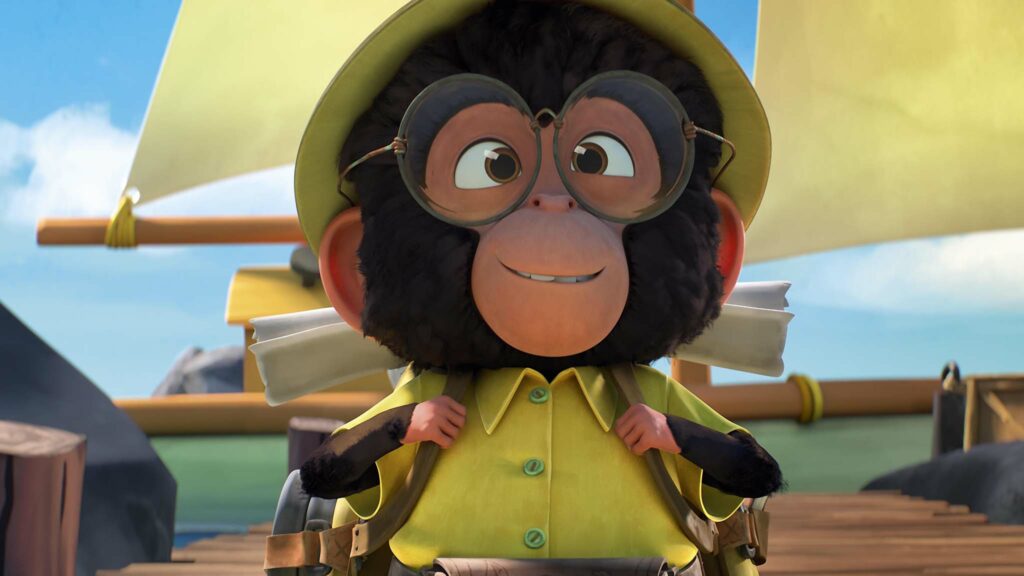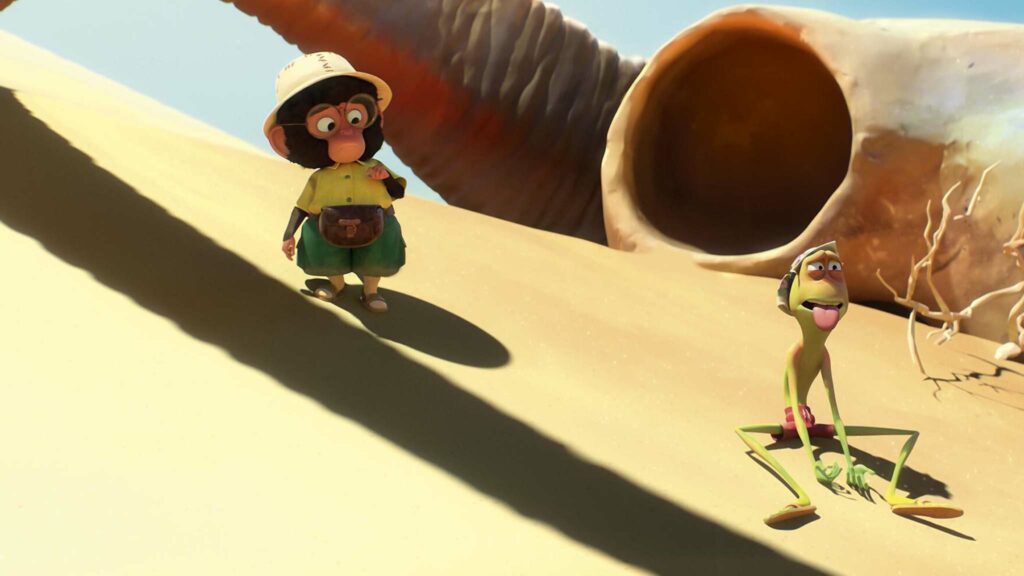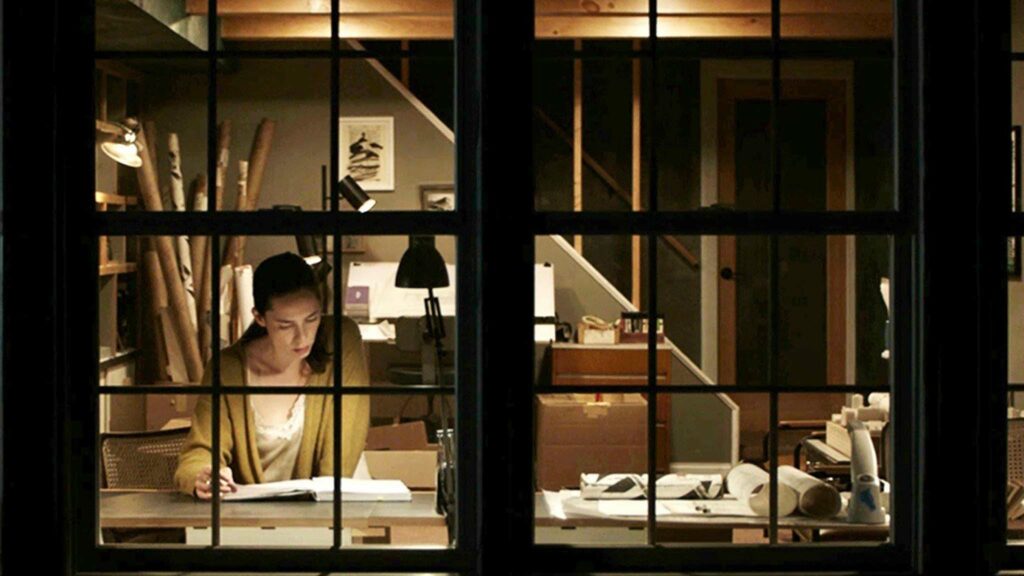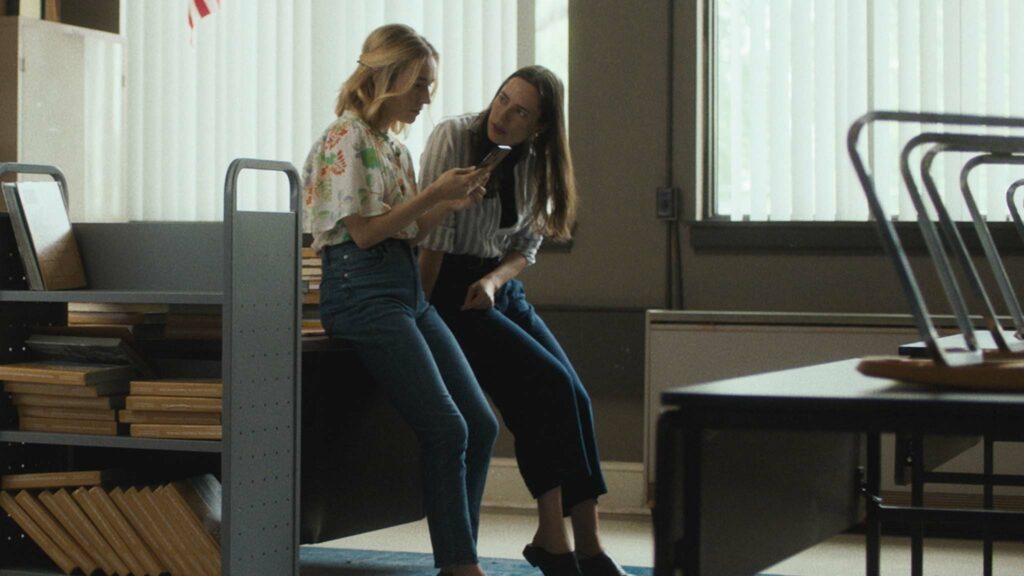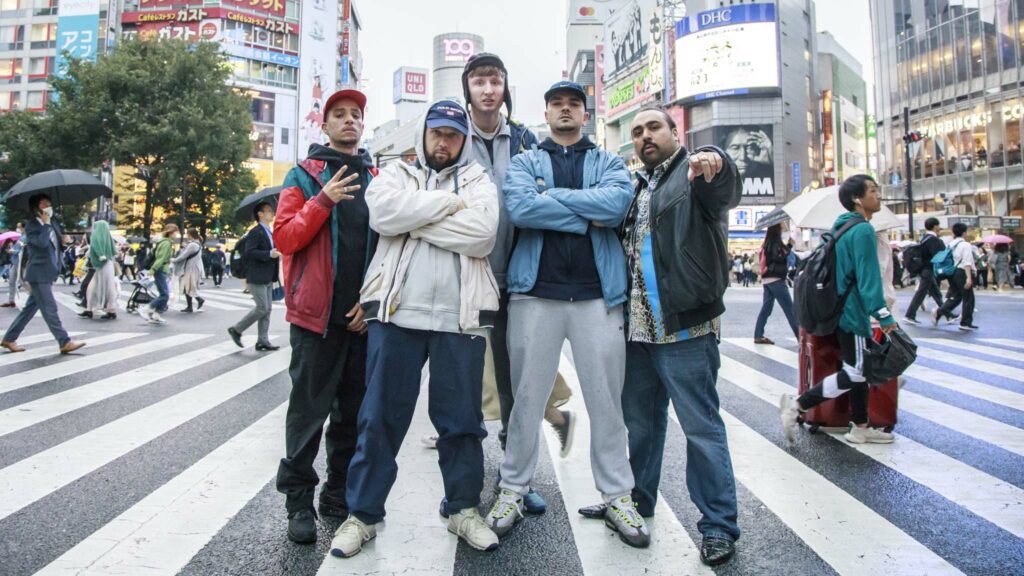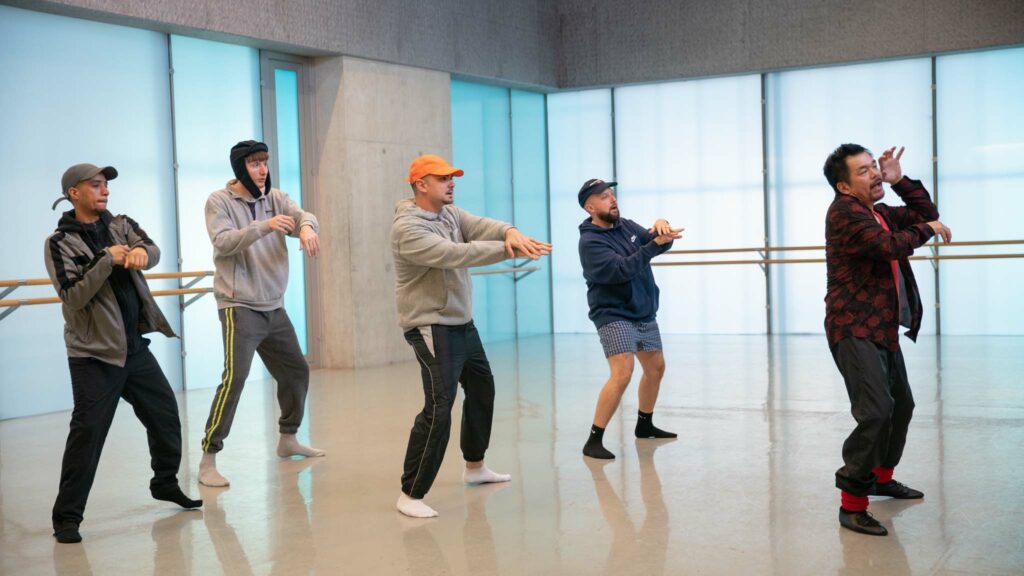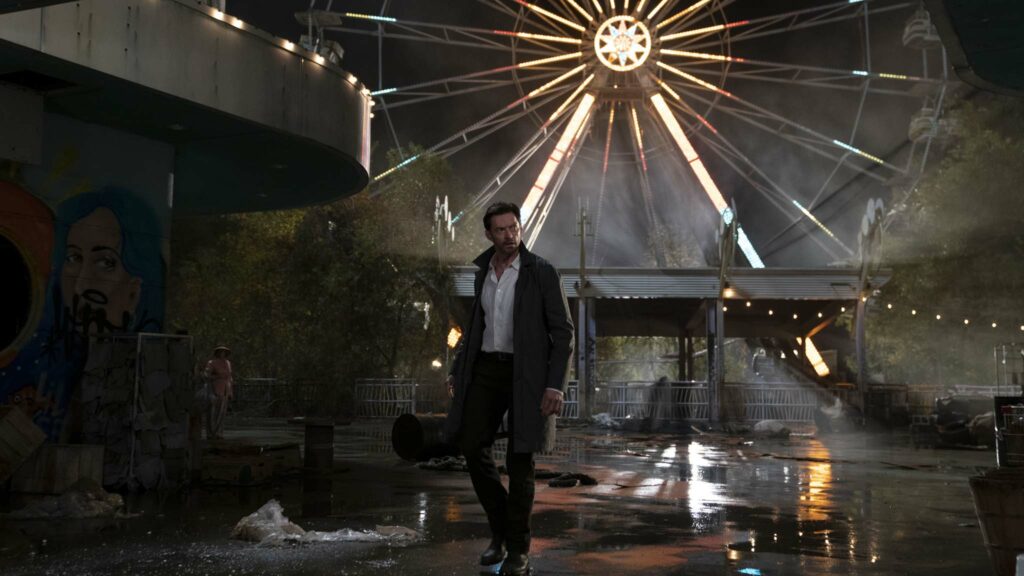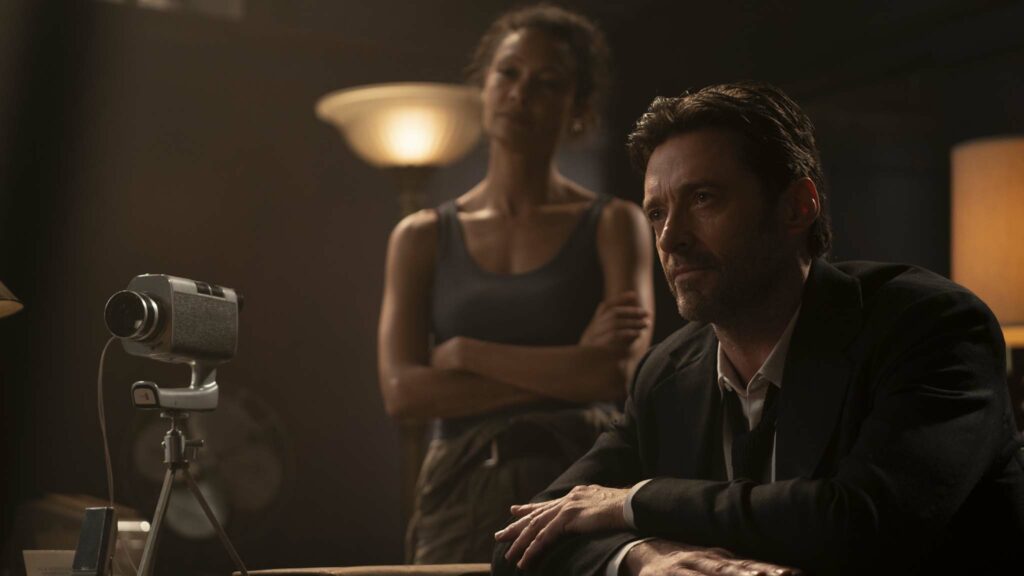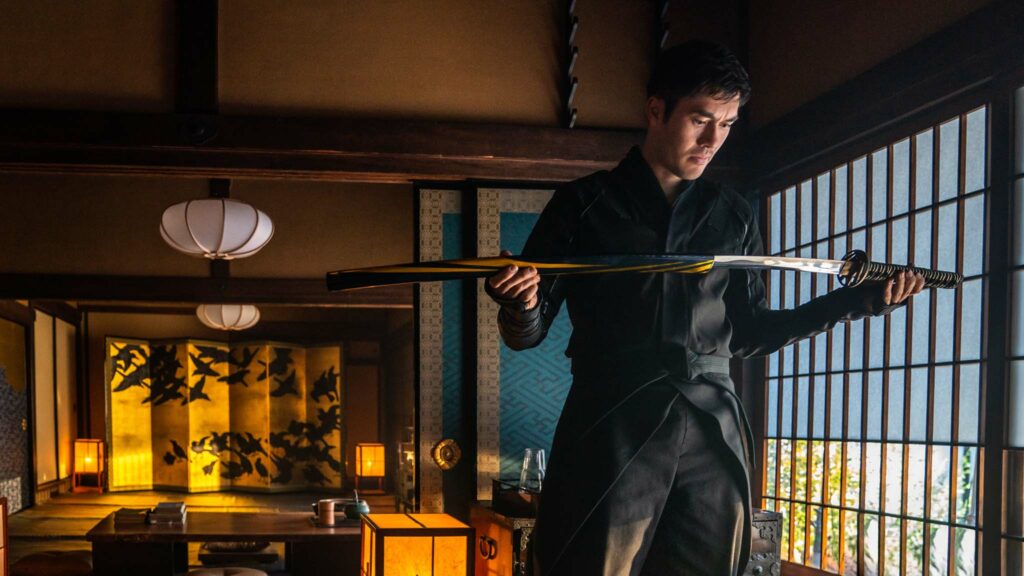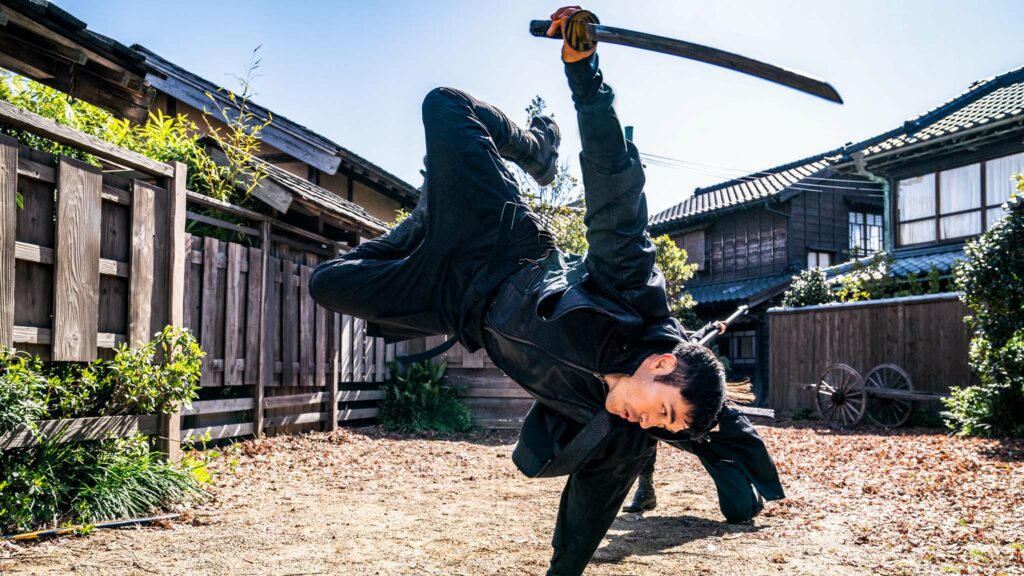Animation
Around The World In 80 Days (PG)
Review: Oscar-nominated French director and animator Samuel Tourneux unleashes a menagerie of anthropomorphic critters in a pedestrian, family-friendly adaptation of Jules Verne’s 19th-century adventure novel. Set on a large island with visually contrasting ecosystems including a desertscape and lush jungle, which creature characters mistakenly believe constitutes the entire world, this effervescent caper retains key figures from the book including Phileas, Passepartout and Detective Fix and adheres fairly to the timeframe, tracked via on-screen captioning. Despite the titular deadline and a sizeable wager resting on its successful completion, Tourneux’s picture lacks any sense of urgency or peril and could easily be rechristened Around The Houses For 82 Minutes.
Screenwriters Gerry Swallow and David Michel draw attention to deficiencies in their writing by allowing animated characters to poke fun at lazy adherences to convention or second-hand flourishes like a full-cast dance-along to Technotronic’s 1989 anthem Pump Up The Jam that clearly hopes to emulate the lemurs from Madagascar shaking their tails to I Like To Move It. Self-referential jibes aside, the script plays hide and seek with jokes and neglects to find them while vocal performances possess the same frenetic energy as action sequences, which expand the running time but serve little narrative purpose.
Mild-mannered marmoset Passepartout (voiced by Cory Doran) dreams of travelling the world like his adventurer hero, Juan Frog de Leon (Juan Chioran), who famously circumnavigated the globe in 90 days. Alas, Passepartout will never leave his painfully quiet coastal home or the smothering kisses of an overprotective mother (Shoshana Sperling), whose mantra for life is, “Do nothing until you’re fully prepared”. Instead, the parent-pecked primate suffers bullying at the hands of snide shrimp Herman (Brandon McGibbon), who runs a daily sweepstake on how long it will take him to make the “weird monkey kid” cry.
One of these intimidatory exchanges is interrupted by the splashy arrival of con artist frog Phileas (Rob Tinkler), who surfs into town and bets Herman that he can beat Juan Frog de Leon’s globe-trotting record by 10 days. If Phileas brings back “shelfie evidence” of exotic far away locales using a clam-era, he will be rewarded with 10 million delicious shellfish. Passepartout defies his mother to join Phileas on this exhilarating escapade and the distraught matriarch implores gerbil police officer Fix (Heather Bambrick) to give chase.
Around The World In 80 Days completes its odyssey by land, sea and air, introducing supporting characters like spunky aviator frog Aouda (Katie Griffin) to facilitate Phileas and Passepartout’s grand endeavour. Animation is brightly coloured and willingly sacrifices realism. When one hysterical character cries, single torrents erupt from each eye like burst water pipes and instantaneously turn off on cue. Sperling scene-steals vocally as a meddlesome matriarch and almost makes us wish that Passepartout never leaves home.
Find Around The World In 80 Days in the cinemas
Horror
The Night House (15)
Review: Things go bump, boom and rat-a-tat-tat in director David Bruckner’s twisted psychological horror, which plays mind games with a widow at her lowest ebb and gently tightens the thumbscrews on us too. Written by Ben Collins and Luke Piotrowski, The Night House appropriates tropes familiar to audiences who prefer their thrills spooky rather than gory – occult symbology, creaking floorboards, nervy torchlit exploration – and fashions an engrossing conundrum that may prompt loving couples to question who is sleeping next to them in the marital bed.
The central mystery is tightly spun until the script has to reveal the source of its supernatural jiggery-pokery. The truth should set us free but Collins and Piotrowski’s deep dive into the recesses of an anguished mind comes perilously close to unravelling at the seams. Jump scares come at unexpected moments courtesy of composer Ben Lovett and the sound effects team, who suddenly turn up the volume to deafening in narrative lulls.
A powerhouse central performance from London-born actress Rebecca Hall as a wife tormented by her husband’s self-inflicted demise is a constant source of wonder, including one stunning unbroken shot of her emotional breakdown in juddering, gut-wrenching close-up. She approaches the full-throttle ferocity of Toni Collette in Hereditary. Even when the script isn’t wholly convincing, Hall is, terror etched across her tear-stained features as she puts her character through the emotional wringer with sadistic fervour.
She plays a schoolteacher called Beth who is devastated when her architect husband Owen (Evan Jonigkeit) takes his own life with a handgun while sitting in a rowing boat, floating close to the lake house he built for them. Beside his body is a cryptic handwritten note: “You were right. There is nothing. Nothing is after you. You’re safe now.” Copious glasses of alcohol numb Beth’s grief, causing concern for friend and work colleague Claire (Sarah Goldberg) and neighbour Mel (Vondie Curtis Hall).
During her fitful sleeping hours, Beth experiences strange visions that suggest she could be losing her mind in the midst of despair. Or perhaps, there is a ghostly presence in the home, trying to make contact from an astral plane. As an increasingly disturbed Beth tries to make sense of the spectral visitations, she discovers evidence that Owen may have been leading a double life. “There are worse things to find on your husband’s phone than fully clothed women who look like you,” soothingly suggests Claire.
The Night House send chills down the spine for the first hour, while our feverish imaginations are permitted to fill in the script’s intentional blanks. Once co-writers Collins and Piotrowski reveal their devilish narrative floorplan, it’s a bumpy final push to the grave, or salvation.
Find The Night House in the cinemas
Comedy
People Just Do Nothing: Big In Japan (15)
Review: Award-winning BBC mockumentary People Just Do Nothing, which chronicles the misadventures of Middlesex-based pirate radio station Kurupt FM, heads east on the big screen but almost goes south with a hit-and-miss script that feels like a cover version of funnier and smarter portraits of the cut-throat music industry. “Brentford, Ipswich and now Japan!” summarises DJ Beats (Hugo Chegwin), tracking the group’s haphazard road to success in one of his to-camera interviews.
This Is Spinal Tap and Anvil! The Story Of Anvil are clear references points for Jack Clough’s likeable culture clash comedy, which transplants the deluded UK garage crew to foreign climes to confront cultural stereotypes in mildly toe-curling fashion. An evening meal of freshly prepared ramen topped with a soft-boiled brown egg soaked in soy sauce and mirin is quickly dismissed in favour of American fast food chain burgers overlooking the busy Shibuya pedestrian crossings. When emotions run high, a karaoke bar becomes a predictable backdrop to apologies and reconciliations.
The flimsy plot sings to the same tune as Dreamgirls, creating friction through a scheming record executive, who intends to promote the group’s strongest personality to lead singer and relegate disgruntled, ego-bruised bandmates to the blurred background. A script credited predominantly to the main cast fails to top the charts with belly laughs and overextends a sweet romantic subplot for drug-addled DJ Steves (Steve Stamp).
The two creative dynamos of Kurupt FM have reluctantly surrendered lofty musical ambitions to the daily grind of paying jobs. MC Grindah (Allan Mustafa) is a postman while DJ Beats (Chegwin) works on reception in a ten-pin bowling alley. Out of the blue, a madcap Japanese game show samples one of the group’s tracks, Heart Monitor Riddem, to accompany footage of contestants wiping out on an obstacle course. Kurupt FM is invited to Tokyo to capitalise on this unexpected brush with celebrity. “You’ll be delivering your own royalty cheques to yourself soon,” gushes the band’s hapless manager, Chabuddy G (Asim Chaudhry), to MC Grindah.
The whole crew including MC Grindah, DJ Beats, DJ Steves, Chabuddy G and Decoy (Dan Sylvester) flies to the Japanese capital, where slick A&R man Taka (Ken Yamamura) takes charge. Cracks appear when Taka forcefully suggests a name change from Kurupt FM to Bang Boys to appeal to the local market. MC Grindah dances to Kata’s tune but the rest of the group loudly voice their opposition.
People Just Do Nothing: Big In Japan is a classic underdog story that encourages us to root for Kurupt FM as the twin furies of fame and fortune weaken fraternal bonds. Fish-out-of-water vignettes, like Chabuddy G trying on a suit several sizes too small, repeatedly miss the mark by that narrow margin which separates a smile from a full-throated guffaw. This is not Spinal Tap.
Find People Just Do Nothing: Big In Japan in the cinemas
Thriller
Reminiscence (12A)
Review: Lisa Joy, co-creator of the Emmy Award-winning TV series Westworld, makes her feature film directorial debut with a dystopian thriller, which invites characters to wallow in memories of the past. In near future Miami, extreme weather has left most of the city languishing underwater. On the fringes of this sodden and broken society, private investigator Nick Bannister (Hugh Jackman) helps clients access lost memories with the technological assistance of his business partner, Watts (Thandiwe Newton).
An alluring new customer called Mae (Rebecca Ferguson) approaches Nick to help her resolve a seemingly simple case of lost and found: she has misplaced her keys. In the process, Nick develops a dangerous obsession with Mae and he stumbles into a violent conspiracy that could prove fatal to the detective and everyone he cares about.
Reviews of Reminiscence are embargoed until 5pm on Wednesday. Check back later in the week for our full review.
Find Reminiscence in the cinemas
Action
Snake Eyes: G.I. Joe Origins (12A)
Review: In a game of craps, a shooter has a 1 in 36 chance of rolling snake eyes – double ones – with a pair of dice. The probability that audiences will enjoy the rough and tumble of Robert Schwentke’s origin story is considerably higher, but far from a certainty. Arriving eight years after Jon M Chu directed the deeply disappointing G.I. Joe: Retaliation, this rumbustious reboot of the film franchise sharpens its blade on the tragic backstory of a masked, sword-wielding commando from Hasbro’s popular line of G.I. Joe toy figures dating back to the mid-1960s.
Henry Golding dabbles with an American accent depending on the gravity of the scene: the greater Snake Eyes’ inner turmoil, the more likely he is to slip into his native British purr, which sets hearts aflutter in Crazy Rich Asians. Physically, he is more than a match for intricately choreographed fight sequences and chases, performing many of his own stunts as part of an acrobatic international cast that includes Indonesian martial arts whirlwind Iko Uwais from The Raid films.
Screenwriters Evan Spiliotopoulos, Joe Shrapnel and Anna Waterhouse justify every slash of a gleaming sword or explosion with kung-fu mumbo jumbo dominated by feuding clans, a DNA-protected magical artefact and three gargantuan computer-generated anacondas which constrict and consume the impure of heart. Voldemort would approve.
Orphaned underground fighter Snake Eyes (Golding) is haunted by the murder of his father (Steven Allerick), whose fate was decided on the roll of rigged dice. Power-hungry Yakuza boss Kenta (Takehiro Hira) vows to deliver the cold-blooded killer (Samuel Finzi) to Snake Eyes in exchange for unerringly loyal service. The brawler complies until he is ordered to assassinate the kingpin’s cousin, Tommy (Andrew Koji), heir to the Arashikage clan of noble warriors. In gratitude, Tommy spirits away his saviour to Tokyo to meet the current clan leader: his grandmother Sen (Eri Ishida).
With Tommy’s encouragement, Snake Eyes faces three fiendish challenges administered by Hard Master (Uwais) and Blind Master (Peter Mensah), which are designed to strip away ego, anger and fear. Head of security Akiko (Haruka Abe) observes the challenger with cold, suspicious eyes. Meanwhile, one of the high-ranking members of the Cobra terrorist organisation, The Baroness (Ursula Corbero), arrives in Japan to pilfer the Arashikage clan’s greatest treasure.
Snake Eyes: G.I. Joe Origins milks every drop of angst from the lead character’s desire for vengeance, evidenced by the time Golding spends furrowing his brow or brooding rather than flexing muscles or scything through enemies. Frenetic editing of fight scenes is an ordeal for the eyes but a centrepiece skirmish on a moving two-level car carrier is thrilling. Corbero’s slinky archvillain seems more likely to fulfil fantasies in Christian Grey’s red room than mastermind a diabolical plot to undermine western democracy. Roll the dice and press your luck.
Find Snake Eyes: G.I. Joe Origins in the cinemas


